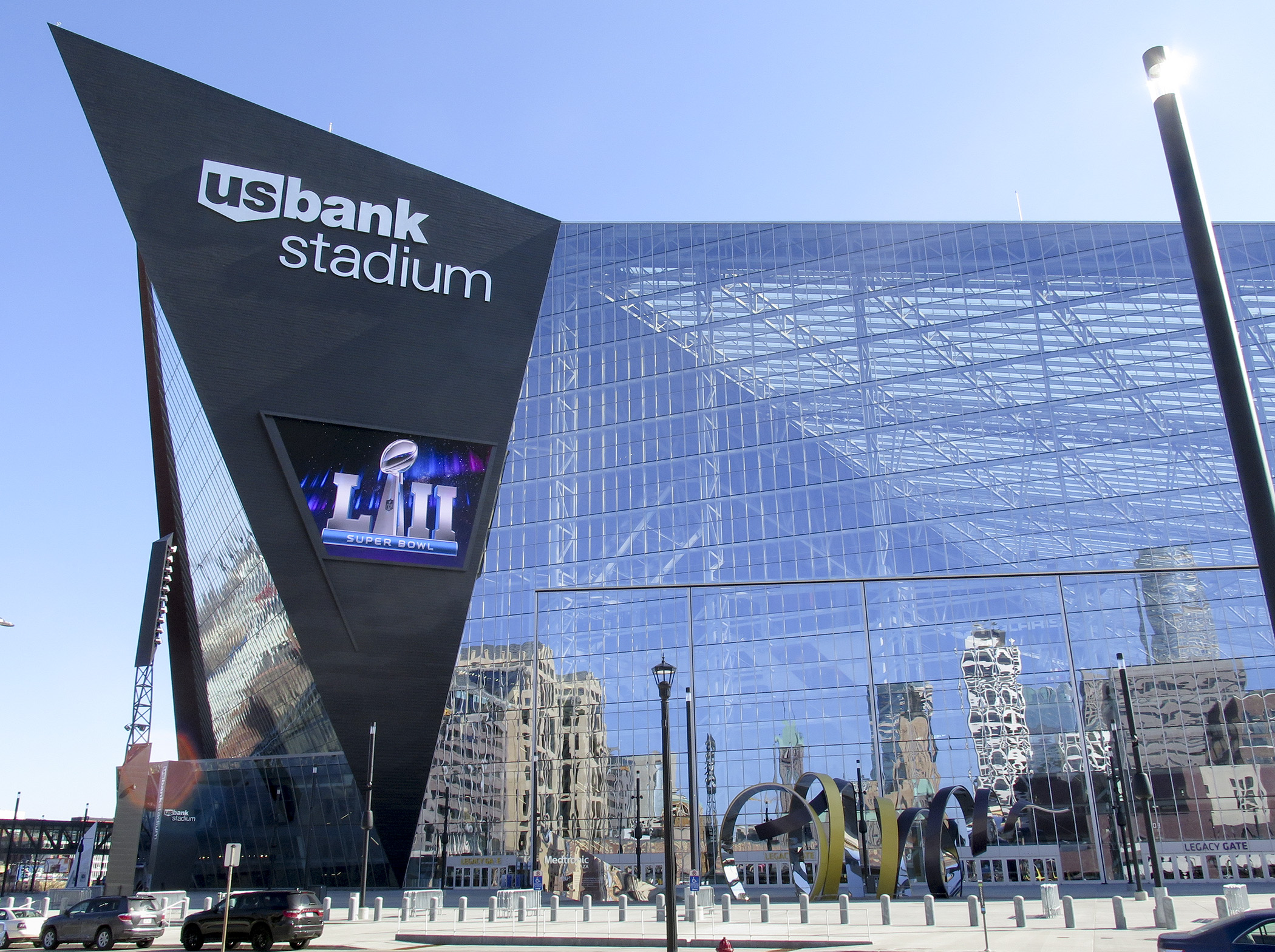Proposed stadium refinance fund seeks to save state millions of dollars

Much like a homeowner is apt to more quickly pay off their mortgage when extra money is available, the same could occur for debt associated with the facility where the Minnesota Vikings play home games.
Rep. Michael Nelson (DFL-Brooklyn Park) sponsors HF3542 to create a stadium refinance fund to be filled at the end of fiscal year with the greater of excess money after stadium-related expenses or $44 million. Fund dollars would go toward paying off debt on U.S. Bank Stadium.
Much like the local NFL team in recent years, the bill is not a complete product. It was laid over, as amended, Thursday by the House State Government Finance and Elections Committee.
“It’s a fairly simple bill, but a fairly complicated bill, and that’s why there’s going to be an amendment forthcoming to clear some things up and give comfort language to the administration,” Nelson said.
The bill would set up a mechanism to capture surplus money in the stadium and use it to pay off bonds once they are callable beginning June 1, 2023.
“Currently, it is scheduled to be paid off in 2043. If we put this money aside and start paying the bonds off next year without penalty, it would be paid off in 2027,” said Nelson, who said some estimates show a $59 million state savings.
The 2012 law that led to construction of U.S. Bank Stadium included creation of a stadium reserve account to cover shortfalls or paying down stadium-related debt and expenses.
It was anticipated much of the state’s investment would come via taxes on charitable gaming, including electronic pull tabs authorized by the law. While that funding started slowly, it and other sources now bring in significantly more money than is needed to make annual debt service payments on bonds and cover other stadium-related expenses.
The stadium reserve account is projected to have a $212.6 million balance in fiscal year 2022 and continually increase to $581.2 million in fiscal year 2025.
Nelson said the idea resembles what was used at the other end of Downtown Minneapolis. Hennepin County financed its share of Target Field through a sales tax increase. Bonds used to finance the ballpark were refinanced and are on track to be paid off 10 years early, an estimated savings of more than $130 million in debt service.
“This bill saves money for the taxpayers, and this money can then be used for other issues we have in the state,” Nelson said.
Rep. Kristin Bahner (DFL-Maple Grove) asked if some of the extra funds could be directed for “immediate relief” to charitable gaming organizations.
“There’s a lot of people that have been eying that money in the last couple years … and using it to pay for their special project,” Nelson said. “Electronic pull tabs was set up as a mechanism to pay the stadium off. If we have extra money in that fund, I feel that it should be used to pay the stadium off, then we’ll free the state of that obligation.”
Sen. Julie Rosen (R-Fairmont) sponsors the companion. SF3266 awaits action by the Senate Finance Committee.
Related Articles
Search Session Daily
Advanced Search OptionsPriority Dailies
Ways and Means Committee OKs proposed $512 million supplemental budget on party-line vote
By Mike Cook Meeting more needs or fiscal irresponsibility is one way to sum up the differences among the two parties on a supplemental spending package a year after a $72 billion state budg...
Meeting more needs or fiscal irresponsibility is one way to sum up the differences among the two parties on a supplemental spending package a year after a $72 billion state budg...
Minnesota’s projected budget surplus balloons to $3.7 billion, but fiscal pressure still looms
By Rob Hubbard Just as Minnesota has experienced a warmer winter than usual, so has the state’s budget outlook warmed over the past few months.
On Thursday, Minnesota Management and Budget...
Just as Minnesota has experienced a warmer winter than usual, so has the state’s budget outlook warmed over the past few months.
On Thursday, Minnesota Management and Budget...